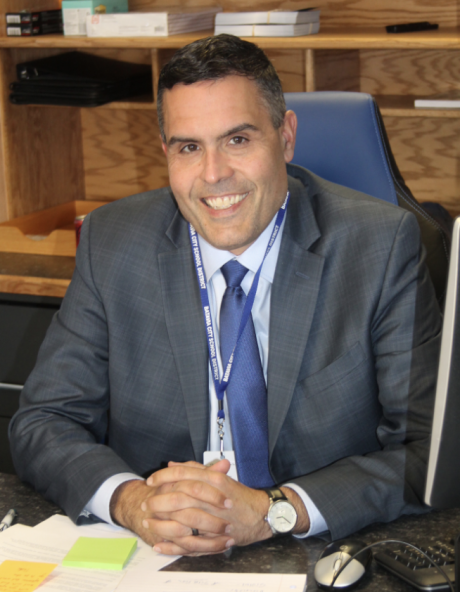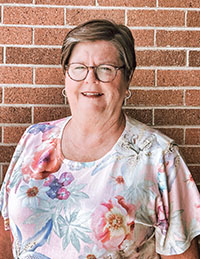Excess teachers and counselors, not enough sharing of services part of staffing study: district leaders' rebuttal

A lack of a comprehensive and strategic staffing plan, increased teacher positions paid for with additional federal and state aid despite declining enrollment, and a larger number of school counselors per federal recommendations were some of the findings of a consultant’s study at Batavia City Schools.
Thomas Ramming of International Deliverables LLC and Thomas Ramming Consulting, Inc., presented his report to the school board earlier this week. The Batavian asked every school board member and Superintendent Jason Smith for their comments regarding the outcome, which also included suggestions to rectify some of the seemingly misaligned student-to-staff ratios and revising contract language for more effective bargaining negotiations.
The consultant's process included using an “efficiency lens” that relies on data to review staffing issues. He also met with Superintendent Jason Smith, administrators and principals, plus reviewed master schedules, enrollment history, collective bargaining agreements, average class sizes, financial information and related research.

“Pointing out again that this study, although has its positives, does not take into consideration the needs of the students, both academically and social/mental since post-COVID,” Reigle said. “I will continue to be a strong advocate of our students’ needs. As Dr. Ramming pointed out, these additional positions were added utilizing those additional COVID funds.
“Our district was required to document how it was spent. I think that is a key factor to point out and keep in forefront of mind that some of our students, along with other students nationally, have had a learning loss due to COVID in regards to academics and their social/mental well beings,” he said.
The COVID funds are that of the American Rescue Plan Act, which divvied up additional monies for municipalities, and for school districts to apply toward student-needed measures in the current post-pandemic era. The district dedicated a large portion to the hiring of a second school resource officer and several new teaching positions.
During his talk with the board, Ramming admitted that the whole COVID scenario was not calculated into the overall findings, but he also suggested that the district continuously assess whether the extra personnel will be warranted in the future. And if that’s the case, the district needs a plan for how to pay for those salaries and benefits, Ramming said.

As for possible remedies for staffing issues that Ramming highlighted, including certain language that hinders negotiations with the teacher’s association, and potentially excess staff, Smith said the district has “already started implementing suggestions.”
“Two vacant teaching positions (music and Spanish) were not recently filled and will not impact the instructional program,” Smith said. “We’re working closely with our music department to review schedules, and are always in respectful and professional conversations with BTA officers to promote efficiencies while recognizing the important work of our teachers.
“Additionally, each principal and district office administrator has thoroughly reviewed and analyzed this study, and it has been given prime attention at our internal meetings,” he said.
The savings by not replacing those vacant positions covered the $12,000 cost of the study, he said.
The district has been analyzing the need for “every single position as they become vacant,” he said, citing two cases of positions not being filled after ensuring that instructional programs would not be negatively affected, he said.
“Teachers whose positions are being paid through grant funds are notified right away upon acceptance of the position that it is a temporary position — this is a practice I have brought to Batavia,” he said. “It is fiscally sound to the district and fair to the employee.”
Smith argues that teaching positions are not “extra,” as they have been deemed as critical to the district’s mission and vision. And “we were thankful to have the grant money and federal funds to support these positions,” he said.
When asked how the district will assess the value and need for those additional teachers, there are "data tools" used to measure the social emotional learning needs of students, he said.
"We can survey students and families, and there are objective tools we can utilize as well," Smith said. "In addition, the district will be using a universal screening tool and research-based tool known as DESSA. It is a standardized, strength-based assessment designed to measure social-emotional competence for students in grades K-12. This screener will provide the district with data to analyze and plan for student needs."

“We have been assured by the Superintendent that he and his administrative staff will fully review and consider the findings of this study,” Benedict said.
“I have come to realize that with the effects of the COVID pandemic, our student population has significant mental health concerns. Our district wants to provide adequate support for our students with as much help and support as they need,” she said. “I am sure the Superintendent and his administration will look hard at our staffing numbers and make the appropriate decisions with regard to the positions of counselors and social workers in the district.”
Board member Barbara Bowman said that, while Batavia is amazing as a district, "I know it’s not perfect."
"This study just confirmed for me that we have the ability to continue to move forward, and it gave us concrete, objective ideas to consider," Bowman said. "The (Batavia Teacher's Association) represents a precious commodity, our teachers. They in turn provide above and beyond services to our students. We are always in communication with the superintendent and I feel there is always room and ability to negotiate. We’re definitely on the same team!"
When asked for their priorities, board members shared similar sentiments about wanting to move forward and working with key players in the district for each student's benefit.
"I see our first priority to be working together with the parents, the administrators and the superintendent to identify priorities and effective ways to address them," Bowman said. "Communication is key on the part of all stakeholders to keep moving Batavia forward and upward."
John Marucci, board president, said that he was looking forward to working with Smith and the administrative team on study-related efforts.
“My priority is still doing what's best for the students,” Marucci said.
This was a first-time study of this kind for board member Jennifer Lendvay, she said.
“Whenever a study is done, no matter what we are researching, we do so to get an objective perspective from an outside source. I found Dr. Rammings' results incredibly informative and personally look forward to working closely with our administrative staff and Mr. Smith to carefully analyze these findings and move forward,” Lendvay said. “Being somewhat new to the board, this was the first time I have been a part of a study in regards to our operations and staffing, so hearing the information was quite insightful.”
She disagreed with the finding that the district didn’t do much sharing of teacher services — specifically cited as having “a lack of coordinated effort to share teachers between buildings.”
“Knowing that we currently do have teachers that are shared within the district, and none of those are related to the ARPA funds,” she said. “Our teachers go above and beyond for our students and have been willing to do what is necessary to assist in their learning, including traveling between schools.
“At this point in time, our students are still in need of additional support: academic, social-emotional, mental health, etc. Dr. Ramming corroborated that we have been able to add teachers because of the funding,” she said. “The additional funding was spent to help address the learning loss. Mr. Smith has made it a point to be transparent with our employees, that being hired under these funds, that it is temporary funding.”
Newly elected member Korinne Anderson said that she looked forward to “learning more about this study as the year progresses,” and is glad that it was completed “because it gives a different perspective.”
Board member Chezeray Rolle did not respond to The Batavian’s questions.
Primary suggestions given to the board include to:
- Incorporate a five-year vision with specific and measurable academic, social and emotional goals in the strategic plan.
- Identify a central office administrator to develop and implement, with input from other administrators, principals and the board, a strategic staffing plan and process.
- Continue to review the impact of the collective bargaining agreement on staffing, scheduling, and instruction and seek to address the most significant issues through collective bargaining.
- Objectively assess the value of positions funded by ARPA and determine their value. Consider reallocating resources when the grant expires. Also, as any position becomes vacant, objectively determine if the position nesds to be filled long- or short-term, or perhaps part-time.
Other suggestions include:
- Update and consistently follow class size guidelines, student-to-teacher ratios and minimum class sizes.
- Look at sharing special area teachers, such as physical education, music, art, especially between Jackson and John Kennedy.
- Consider coordinating the schedules for middle and high schools to facilitate sharing of teachers;
- Evaluate the roles and responsibilities of school psychologists, school counselors and school social workers, within the framework of a comprehensive plan, to determine appropriate staffing
To watch the presentation, go to Batavia City School District on Youtube.com.
